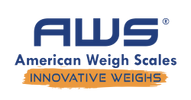There are several key points that need to take into consideration before buying scales. These points are below and will help guide you into buying the correct scale for your application.
What is the maximum weight you want to weigh up to?
The maximum weight required includes any TARE weights that you may need, for instance if you have a pallet of goods that weighs 1,000lb and the pallet weighs 40lb then a 1,000lb scale is not suitable. Sometimes it is a good idea to choose the next capacity range available to future proof.
What is the resolution/division you require i.e 10g/0.1g/1mg?
Divisions are the steps in which a scale goes through its range, for instance a scale that has a capacity of 600kg will typically have an increment size of 0.2kg (200g). The resolution on most scales is set at 3,000 divisions, essentially any scale capacity is divided up into 3000 parts, therefore the resolution is normally a direct correlation with the capacity. In some instances scales can be found that have upwards of 30,000 divisions or even higher, these tend to use high quality load cells/electronics and usually command a higher selling price.
What size scale do you require?
The capacity of the scale normally dictates the size of the weighing area on scales that are mass produced, we carry scales that feature a larger weighing area but with low capacities. For a scale that weighs up to 500lb the size may be upwards of 24" x 24". When products are bulky they may hang over the side of the scale, in most cases this isn’t an issue, as long as the product does not touch anything else or have any part of it relieved off of the scale.
What environment is the scale going to be placed into (wet/dry/damp/explosive)?
This is a very important factor to take into consideration, many cheaper scales do not feature protection from ingress of water and moisture. This is probably the highest cause of scale failures. Buying a food scale that features IP rated sealing and a hygienic finish is always preferential when working within that industry or similar. Buying scales that feature a form of ingress protection will definitely save money in the long term. Explosion-proof (or Intrinsically Safe) scales are designed for hazardous areas that have been zoned and rated as such, Zone 2 scales are typically cheaper than Zone 1 scales due to the extra protection rating, however they should never be used in a Zone 1 area.
Hopefully the short article above will help you when deciding what specification of weighing scale you require. If you have any additional questions or requirements our AWS Team is only a phone call away.
